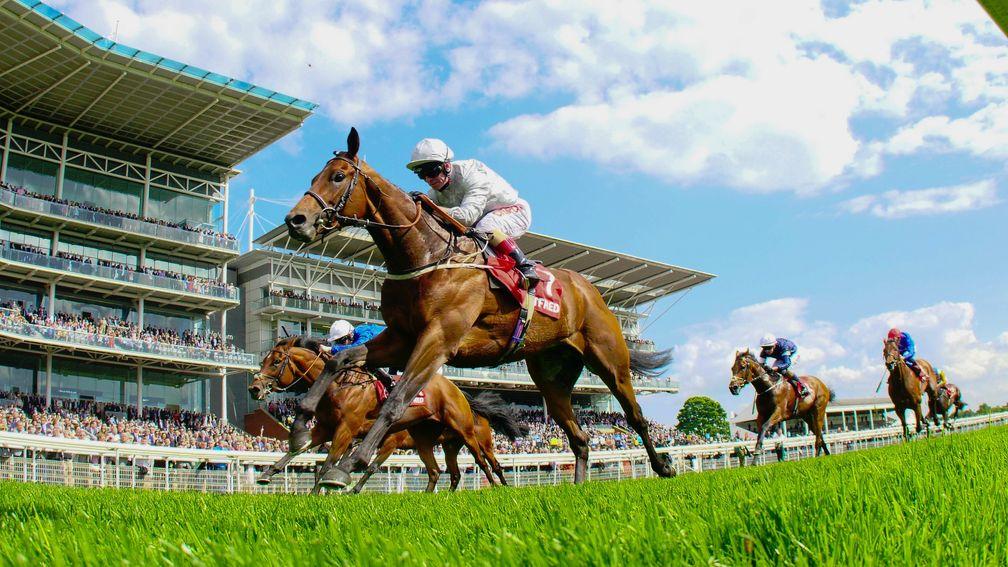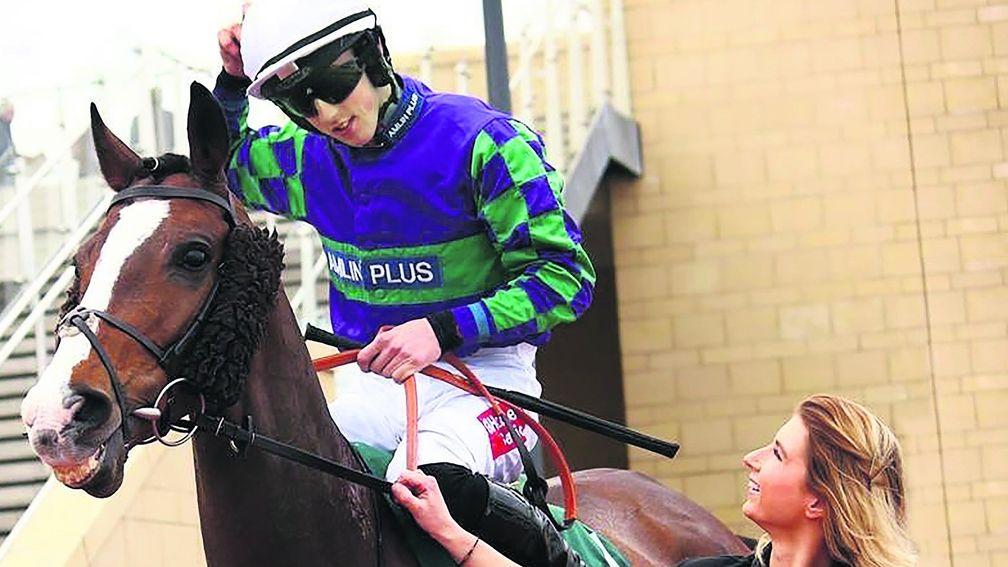The pain when your horse doesn't return from the races

In the light of Permian's death in Chicago on Saturday, groom Kate Tracey gives the stable staff's perspective on dealing with the heartache when a racehorse is lost in action
The sudden death of a racehorse on the track never becomes easier for racing fans. We all know it is a risk – just as all aspects of life for horses and humans can be hazardous – but when it happens it still strikes a cold blow.
Yet, however tough it is for the avid fan it is immeasurably harder for the horse's lad or lass. It doesn't matter if your horse is a Gold Cup winner or one who struggles to lay up in sellers – if you look after them every day you love them.
As stable staff, we develop an affinity with our horses. We see them 13 days out of every fortnight. We have our routines with them, as they do with us. We know them better than anyone – where they like to stand when you muck them out, whether they get hot or cold at night, how they like their bed laid out.

You cannot fake this relationship, it is born out of time and horsemanship. The worst thing to happen for anyone who works in racing is for your horse to be fatally injured at the track.
We all understand the risks involved with our great sport, and these situations are thankfully rare – which only makes it harder when you are personally involved in a death. You set out for the races not questioning whether your horse will come back that night. Their stable will be bedded up, hay and feed will be put in their stable in anticipation of their return.
Prepare to perfection
At the races you prepare your horse to perfection. You take their travelling protection off, make sure they're comfortable and washed off if necessary. Some yards plait their horses, which is a great art. Stable staff will brush their horse until they gleam with health, taking pride in their gorgeous creature.
You do everything with your horse until the jockey gets on and you let go of the reins, releasing them on to the course – the only time they are out of your control. You never imagine it might be the last time you will touch them.
In the event of a fatal accident your first emotion is pure shock. A feeling of disbelief – knowing the incident looked bad but hoping your horse will be okay. Once you've accepted the truth, that your horse has died, you just hope they did not know anything about it and it was quick. At the forefront of your mind is still your horse's welfare and the reassurance they have not suffered.
Following the initial shock is the heartache from the small things such as going back to the stables to roll up their bandages, knowing they won't be put back on any legs today. You have to load the lorry up with all of their things, their headcollar and rugs. The feeling when you get back to the yard is one of being superfluous – you now have no horse to put away for the night.
The following day you fall into a normal morning routine and automatically go to muck out your horse, only to realise they aren't there anymore, the mundane of the everyday routine halted. Instantly you miss the mundane.
Instead you face the awful task of removing all of your horse's things from their stable – rugs, bandages and any other special, personal belongings the horse had. This is heartbreaking - they are the last thing you have of them, the sense of them still being there is felt when handling these such personal items.
The best healer
The final task in this heart-wrenching ordeal is the emptying of the stable for a new resident to come in and take your horse's place. Initially, this feels wrong, that no-one should take your horse's place – but it is actually the best healer.
As sad as losing a horse is, it is, unfortunately, always a possible outcome. The best thing you can do after such a tragic event is carry on doing what you do best, looking after the horses to the best of your ability so they can flourish in their races.
The reason we feel such pain and anguish over the fatalities of our horses is because we have been allowed to love and appreciate them through racing. We have watched some of them race for years and they have shone, performing in a sport they enjoy.
These horses are given the platform to be loved through racing. They are our sporting idols and are treated as such. We as stable staff hurt so much when one of our team doesn't come home because that's what we are – one big team.
We love what we do and they love what they do. And when a tragic accident does happen we take great solace in knowing they have led the best of lives.
You may also like:
Groom highlights concerns of employees
Published on inNews
Last updated
- Join Racing Post Members' Club for the very best in racing journalism - including Patrick Mullins' unmissable trip to see Gordon Elliott
- Racing Post Members' Club: 50% off your first three months
- Join the same team as Ryan Moore, Harry Cobden and other top jockeys with 50% off Racing Post Members' Club
- 'It’s really exciting we can connect Wentworth's story to Stubbs' - last chance to catch master painter's homecoming
- The jumps season is getting into full swing - and now is the perfect time to join Racing Post Members' Club with 50% off
- Join Racing Post Members' Club for the very best in racing journalism - including Patrick Mullins' unmissable trip to see Gordon Elliott
- Racing Post Members' Club: 50% off your first three months
- Join the same team as Ryan Moore, Harry Cobden and other top jockeys with 50% off Racing Post Members' Club
- 'It’s really exciting we can connect Wentworth's story to Stubbs' - last chance to catch master painter's homecoming
- The jumps season is getting into full swing - and now is the perfect time to join Racing Post Members' Club with 50% off